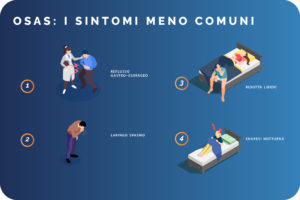
Obstructive sleep apnea syndrome (OSAS) is an under-recognized clinical condition and is correlated with sleepiness and impaired cognitive function. Objectives: The primary aim of this systematic review, developed within the Sleep@OSA project, was to determine the correlations of obstructive sleep apnea syndrome, daytime sleepiness and sleep-disordered breathing with the risk of car accidents in adult working populations; a secondary aim was to analyze the epidemiologic data with a gender-based approach to identify differences between women and men in the data and in associated risk factors. Methods: Clinical trials and studies reporting data on the frequency of car accidents involving adult working population with daytime sleepiness and/or OSAS compared with a control group of participants were included. Literature searches of free text and MeSH terms were performed using PubMed, Google Scholar, the Cochrane Library and Scopus from 1952 to 3 May 2021. Results and Conclusions: The search strategy identified 2138 potential articles. Of these, 49 papers were included in the qualitative synthesis, and 30 were included in the meta-analysis. Compared with controls, the odds of car accidents were found to be more than double in subjects with OSAS (OR = 2.36; 95% CI 1.92–2.91; p < 0.001), with a similar risk between commercial motor vehicle drivers (OR = 2.80; 95% CI 1.82–4.31) and noncommercial motor vehicle drivers (OR = 2.32; 95% CI 1.84–2.34). No significant correlation was found between sleepiness and car crashes, but subjects with sleep-disordered breathing were at increased risk of car accidents (OR = 1.81; 95% CI 1.42–2.31; p < 0.001). To our surprise, although epidemiological studies on the risk of road accidents in the adult population with OSAS and daytime sleepiness are currently very abundant, specific data on the female population are not available.


Commenti recenti